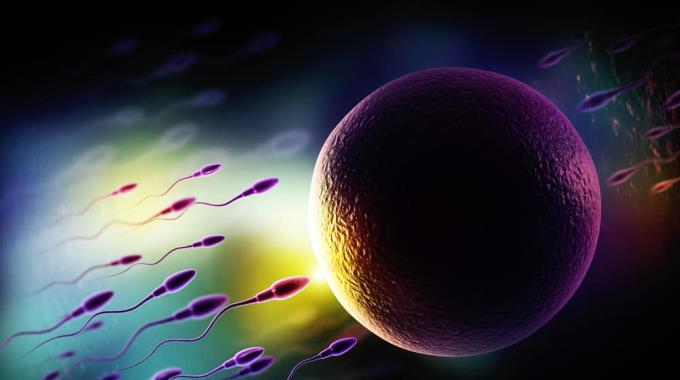Sperm transplant is a medical technique that increases the chances of getting pregnant for people who have difficulty or delay in having a baby through natural fertilization.
The sperm culture is also known as the in vitro fertilization method. After successful fertilization of the egg in a test tube environment, it is inserted into a woman's uterus and grows there until birth.
What manifestations will this method cause on a woman's body? When should you have a pregnancy test after transplant? Please find out in this article.
Common symptoms after sperm culture

Most women who have recently had a sperm transplant often experience angina in the abdomen. Pain that is similar in nature to menstrual cramps or gets worse. This is a common symptom when an egg is fertilized and attached to the lining of the uterus to develop into a fetus.
The fetus draws blood and nutrients from the mother's body to develop. Along with your stomach cramps, you may experience vaginal bleeding . This phenomenon, called transplant bleeding, usually occurs 10-14 days after conception.
Vaginal bleeding is usually much milder than menstrual bleeding. In some people, the bleeding is just tiny spots.
In addition, after being transplanted with sperm, the female body may also appear other manifestations, namely:
Amenorrhea
This symptom is the most obvious sign that you are pregnant. It also means that the sperm transplant has been done successfully.
Breast pain
After transplanting sperm, your breasts may swell, causing pain. This occurs due to hormonal hormone of you has changed.
Change emotions, moods
This is also common when your body has hormonal changes.
Anorexia or special sensitivity to the taste of certain dishes
According to folklore, this phenomenon is called " morning sickness ". It is also one of the early signs of pregnancy.
Frequent flatulence
Flatulence can be a normal symptom or a sign of a number of other health conditions. However, if it occurs after you transplant sperm, it is possible that your body has had hormonal changes due to pregnancy.
Stuffy nose
Hormonal changes can cause the mucous membranes in your nose to swell. This can cause a runny or stuffy nose . In some cases, women may also experience nosebleeds after sperm transplantation.
Constipation
After a sperm transplant, you may experience constipation for a few days to a week. This happens because endocrine changes slow the digestive system.
Time to appear symptoms after sperm transplant

When the embryo enters the uterine wall, transplant symptoms can occur 6 to 10 days later.
At this point, the estrogen levels in your body will decrease and the uterine wall is always in a state of preparation for the embryo. Then the body begins to form parts of the placenta. Within two weeks, you will have enough hormone gonadotropin (hCG) to trigger factors for a positive pregnancy test result.
Early signs of pregnancy can appear as soon as the transplant is successful. However, this time period is not fixed. They differ from person to person.
When should you have a pregnancy test?

After transplanting sperm, everyone has a hangover of wanting to have a pregnancy test to see if the results are as expected. However, for the most accurate results, you need to wait one to two weeks after completing the transplant procedure.
The HCG hormone takes time to build up in the body before a positive result is given on a urine or blood pregnancy test. If you do a pregnancy test before HCG has accumulated enough, the pregnancy test results are often inaccurate.
After about 12-15 days of sperm culture, you can check the results by using a pregnancy test soaked in the urine. If the test has two lines (usually a red or pink line), you are pregnant.
If you want to confirm the results from the urine test again, visit a hospital or other medical facility for a blood test. HCG hormone is detected in the blood as soon as a week of conception.
When do you need to see a doctor?

There are many early signs that you are pregnant. If you think you are pregnant, consider having a pregnancy test at home or going to the hospital to have the test done by your doctor. Test results of doctors at the hospital are always more accurate than home pregnancy tests.
Cramping in the abdomen and a little bleeding from the vagina is common in people who have just implanted sperm. However, some people will not experience this symptom or just have cramping, not bleeding.
Usually, the pain will subside and last within a few days to a week. If the pain persists and is accompanied by fever or other symptoms, go to the hospital to see your doctor.
You also need to be examined by your doctor if you have a lot of vaginal bleeding or if your vaginal discharge is unusual in color or smell. In rare cases, severe cramping and vaginal bleeding are urgent. At that time, the patient should get medical intervention as soon as possible.
After a sperm transplant, you also need to attend full follow-up appointments at the hospital or at the doctor's office. This will ensure you are closely monitored and promptly detecting unusual signs of a miscarriage or ectopic pregnancy .
Sperm culture is a progressive medical technique. This method has helped many couples to receive the child they desire. If it is difficult to fertilize naturally for any reason, consult the information regarding this method before making your choice.















